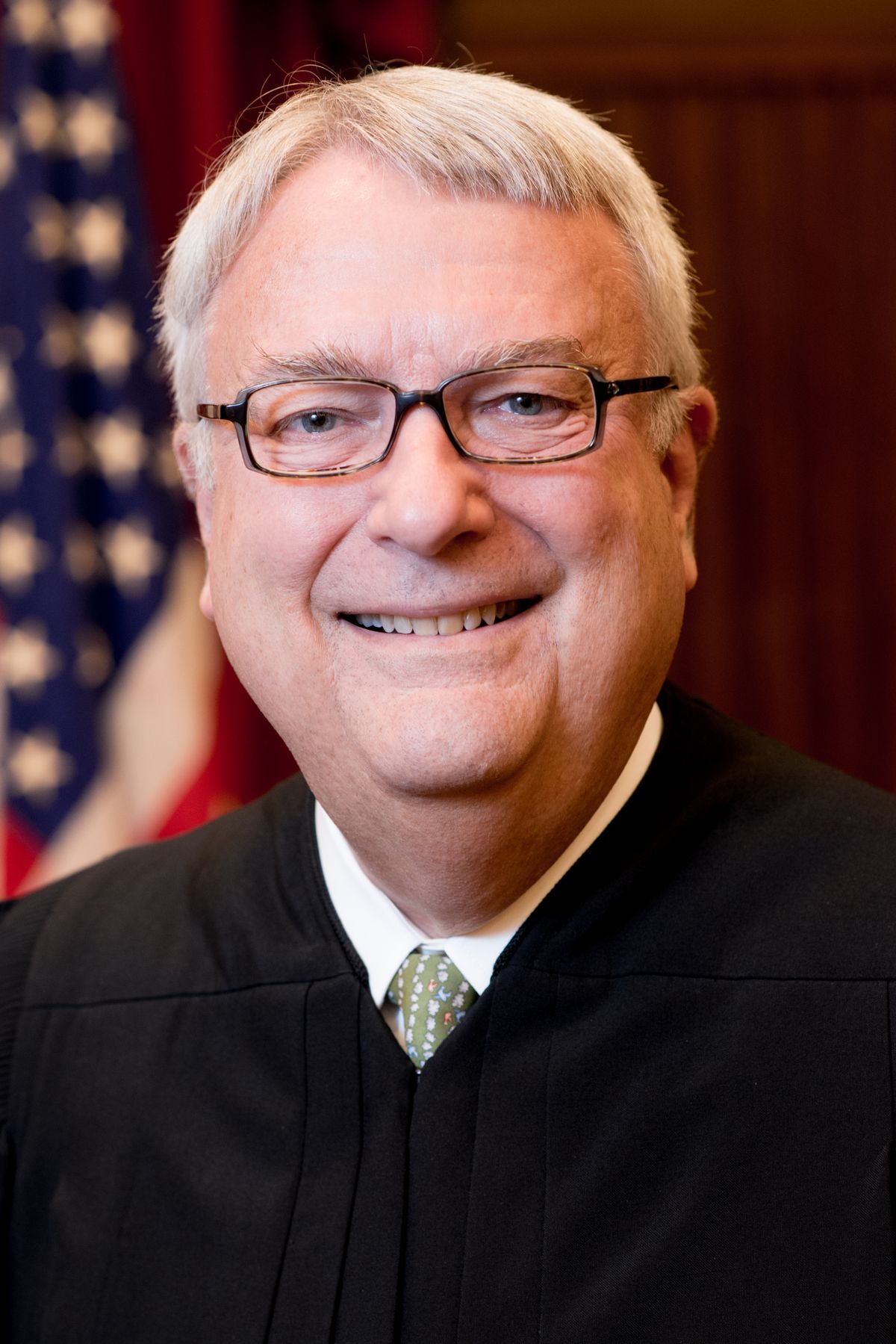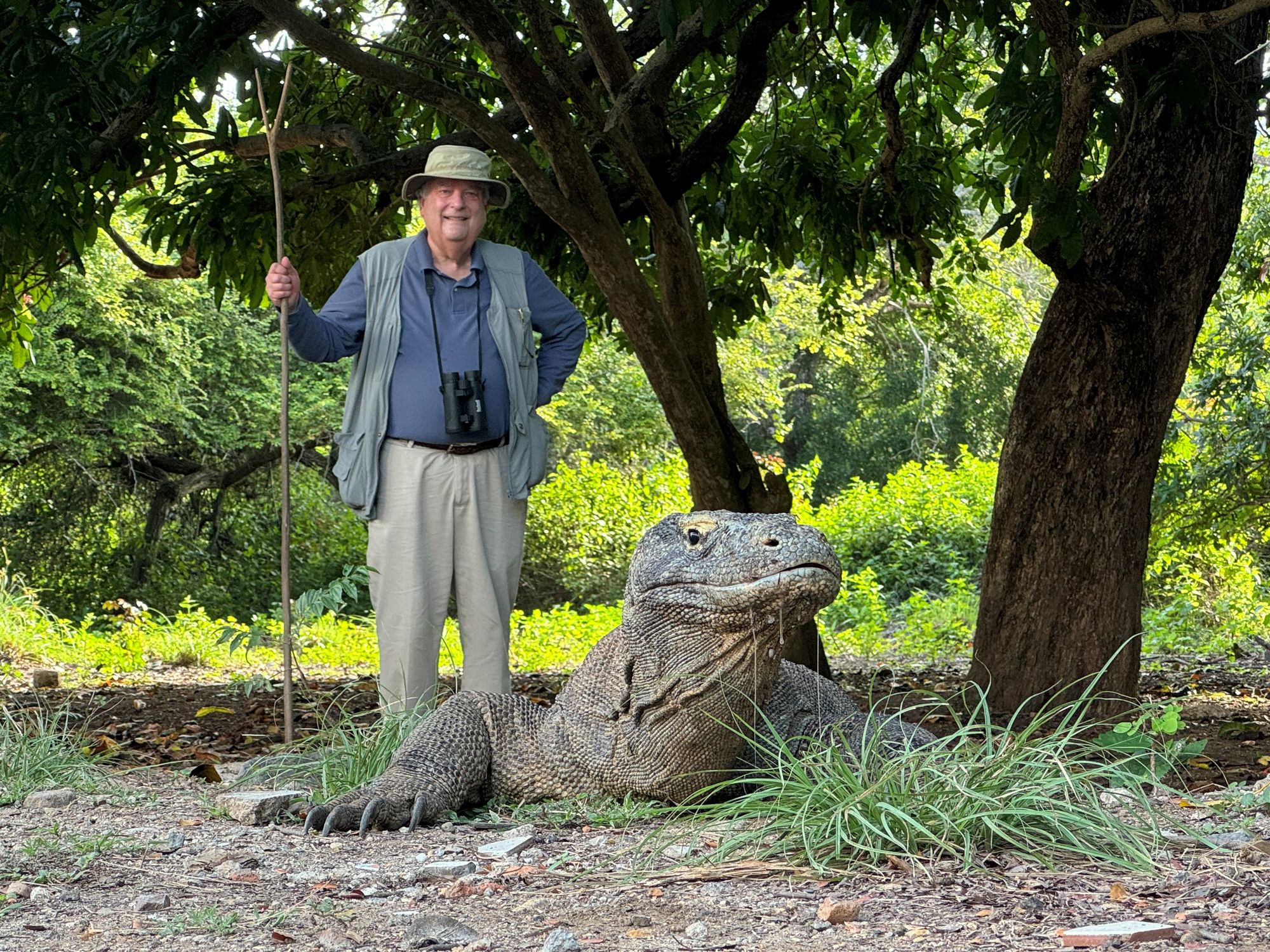From Private Practice to Federal Judgeship — Alumni Profile, Samuel Hardwicke Mays Jr. ’70
Although Judge Samuel Hardwicke Mays Jr. ’70 initially wanted to avoid the limelight, his work as a judge has shown him to be a dedicated public servant.

I have always thought of judges as bossy people. Callous and austere people. The courtroom villains in TV shows and Charles Dickens novels who gavel the room to silence, sentencing the audience’s favorite characters to prison for life. When I contacted Samuel Mays Jr. ’70, now a senior district court judge for the Western District of Tennessee, for an interview, I expected from him more of the same. I was wrong.
What first struck me was that Mays was easygoing. Being “a child of the sixties and seventies,” Mays wasn’t really interested in titles and formalities. He insisted on his nickname, Hardy, outside of his judicial responsibilities. During our initial message exchanges, he even questioned why he, of all people, had been chosen for a profile, saying (perhaps somewhat sarcastically) he wasn’t “considered impressive by anyone other than [his] late parents.”
But whether it has been in his role as legal counsel to Don Sundquist during Sundquist’s term as governor of Tennessee or his current position as a senior judge, Mays has always been dedicated to serving the law and its people. In the brief time we’ve known each other, he has shown himself to be a humble, funny, and dedicated civil servant.
From Memphis to Amherst
A Memphis native, Mays has called the city his home both before and after his time at Amherst. To him, coming to Amherst was a straightforward choice: a family friend had told him about the school, and a quick investigation told him that it was the “best liberal arts college in America.” Looking back at his decision, his intuition hasn’t wavered one bit: “I’ve never thought otherwise.”
Upon his arrival at James dormitory for his first year, Mays found Amherst to be a bit of a culture shock. At the time, the school was still a men’s college, and very different from Mays’ educational background. He had attended a public, coeducational high school in the South, and was leaving behind all his family and friends for New England. Despite this obstacle, however, Mays “quickly made a lot of friends and had a good time.”
Mays also knew he wanted to be a lawyer when he first attended Amherst, having decided on his commitment to the law all the way back in third grade. To Mays, law was “a way of affecting events,” which was important to him, whether he became a judge or not. He had two uncles who had already attended law school, one of whom practiced law in Richmond and also had time to engage in other activities, such as being politically active and writing biographies. To Mays, law school “opened many doors” beyond being just a lawyer.
While Mays’ path to Amherst and the legal world seem straightforward, his decision to be an American studies major was more complicated. At the time Amherst did not have its renowned open curriculum, instead opting for a more rigorous curriculum with heavier distribution requirements known as the new curriculum. Mays had to take courses in physics and biology, among other things; he reminisced how the section he was in was called “bonehead biology.” Mays “sort of wandered into American studies,” where the department had renowned professors such as Leo Marks and future president of the college John William Ward. To Mays, the department was “where ideas were percolating,” which eventually convinced him to major in American studies.
Among the professors Mays knew at Amherst, he was particularly close to Edward N. Ney Professor in American Institutions, Emeritus Hadley Arkes — who Mays still refers affectionately to as “Hadley.” During his last year at the college, Mays had started doubting his aspirations to become a lawyer. Conflicted about his future career, he had thought about working with Historian Van Woodward at Yale University’s graduate history program. It was Arkes who “led [Mays] to the conclusion that [he] needed to be a lawyer.”
Returning Home
Mays’ aspiration to become a lawyer led him to Yale Law School, where he was in the same graduating class as future President Bill Clinton. At Yale, Mays was on the editorial board of “The Yale Law Journal,” one of the school’s student-run law reviews.
After graduating, Mays knew he wanted to work in Memphis and started at a large (for that time) private firm with about 23 lawyers, now known as Baker Donelson. He stayed in the private sector for 22 years, first specializing in corporate and tax law before migrating into other areas, such as transactions about banking and healthcare, as well as litigation matters with family-owned businesses.
Mays found the broad exposure freeing: “One of the good things about law is as the areas of law change and you become interested in new areas, you simply retrain yourself and become a different lawyer or specialize in a different area of law.”
Mays’ transition into the public limelight didn’t occur until one of his friends, then-Governor of Tennessee Don Sundquist, whom Mays had worked with in politics, asked Mays to be his legal counsel. During that time, his responsibilities included reviewing legislation for the Governor’s approval, advising the Governor, and reviewing all judicial appointments, among other things. After two years as a legal counsel, Mays had planned to return to Memphis — that is, until Mays was promoted to deputy to the governor and his chief of staff. As chief of staff, Mays was in effect the chief operating officer of the state of Tennessee, overseeing about 19 billion dollars in annual revenue at the time. His work with the governor lasted five years, an era that involved difficult work with all sorts of people, whether it be shareholders or directors. While his work was more policy focused as a legal counsel, Mays didn’t anticipate any more time in the public sphere, choosing to return to the private sector afterwards. However, just two years would pass before he returned to public policy.
As a Judge
Despite his current position, Mays had actually never wanted to become a judge. In fact, Mays had believed he was “safe” from being nominated to any position of public policy due to the fact that he and President Clinton often had disagreements about the law, both during and after their time at Yale; under the Bush administration, however, Mays was nominated to the judgeship in 2002, where he has maintained the position ever since. Despite being nominated by President Bush, Mays had only talked to him once.
“My old teacher [at Yale], James William Moore, used to say, ‘always remember, a federal judge is only a lawyer who knew a senator.’ And my response to that has been, I knew two senators and a governor,” he said.
As a district court judge for the Western District of Tennessee, Mays does his absolute best to maintain impartiality both in and outside of the courtroom. When we first met, Mays let me know that he would not talk about any cases in a way that would show bias, even if they had been settled; he is not affiliated with a political party, either.
This commitment to impartiality also has its downsides, however: As a judge, spending time talking to or interacting with other lawyers might be indicative of partisanship, even if nothing legal or political was discussed. For Mays, being a judge means all of his decisions are final and have the capacity to change people’s lives, which can be an incredibly daunting task.
“[Being a judge] is very fulfilling,” he said. “It’s sometimes complicated. It’s work of significance. Everything you do, no matter how it might seem to an objective observer, matters to someone. It’s someone’s case.”
One notable case was when Mays oversaw the largest school system merger in U.S. history between Memphis City Schools and Shelby County School, unifying a school population of 146,000 students. He has also ruled on other legislation, notably finding a law allowing suburbs to form their own school districts unconstitutional.
Mays assumed senior status in 2015, an option for judges where the sum of their age and years of service equal 80. It allows judges to take as many or as few cases as they want. Unsurprisingly, Mays still has a full caseload.
A Lifelong Learner
As a senior judge, Mays now spends his free time traveling and reading, whether it be poetry, history, anthropology, or philosophy. More frequently, however, Mays tends to read about the places he’s traveling to, from North Africa to Rome. For an upcoming trip to Algeria, for instance, he’s reading about the country’s history, as well as some books by Albert Camus.
“There’s lots to catch up on and educate yourself about,” Mays said, reflecting on his free time. Like his uncle, Mays has found the time to do many other things beyond practicing the law, dedicating himself to being a lifelong learner.

In a sense, Mays has never stopped being an Amherst student. Even while working as a judge, so many years after his graduation, his schooling has never ended. Wherever he goes, the whole world is his classroom, and he will never stop learning from it.





Comments ()